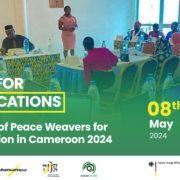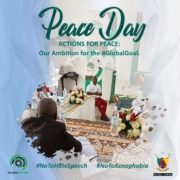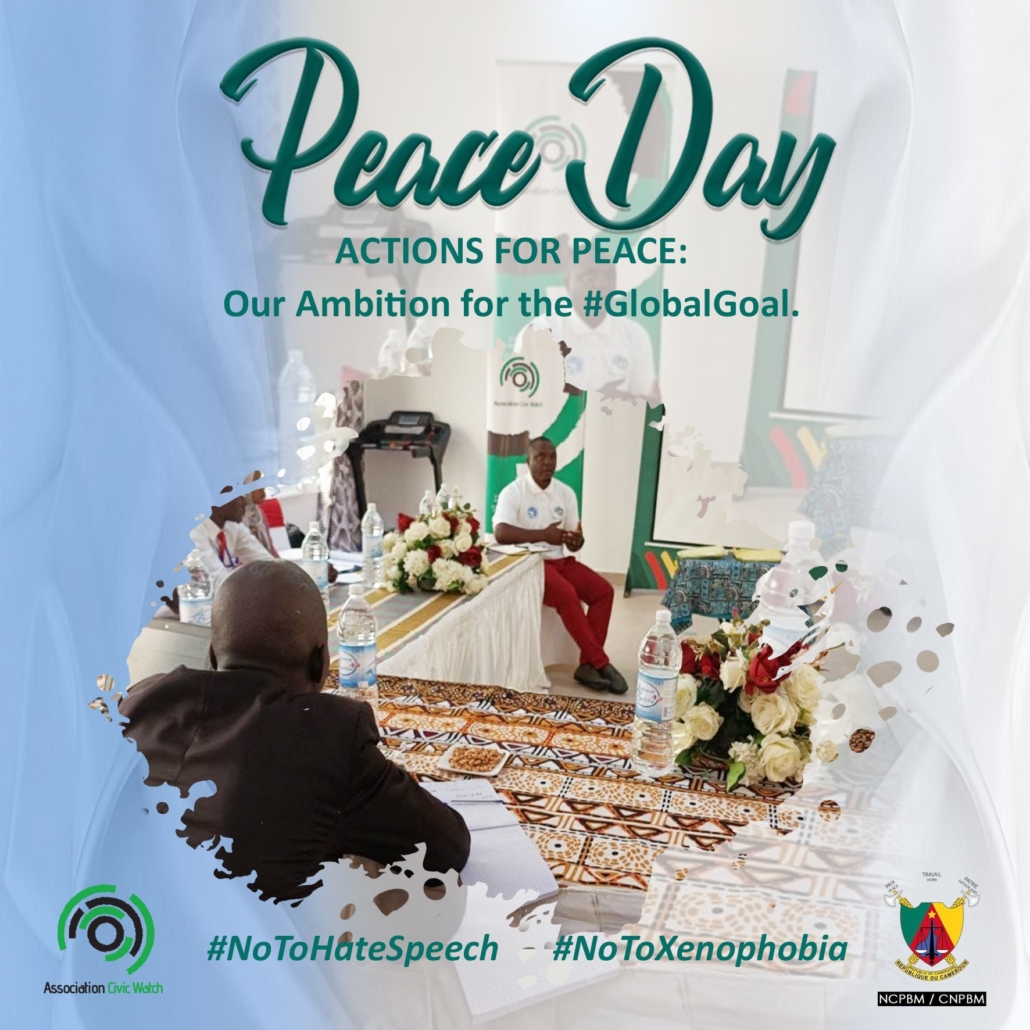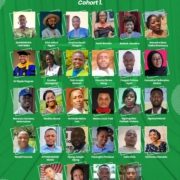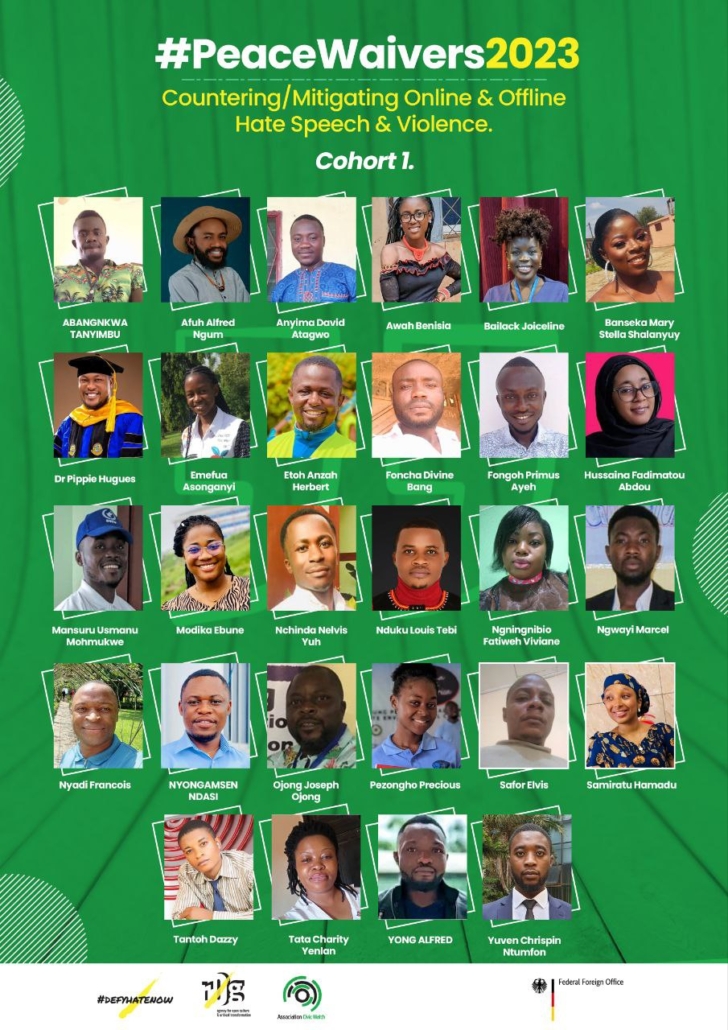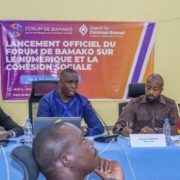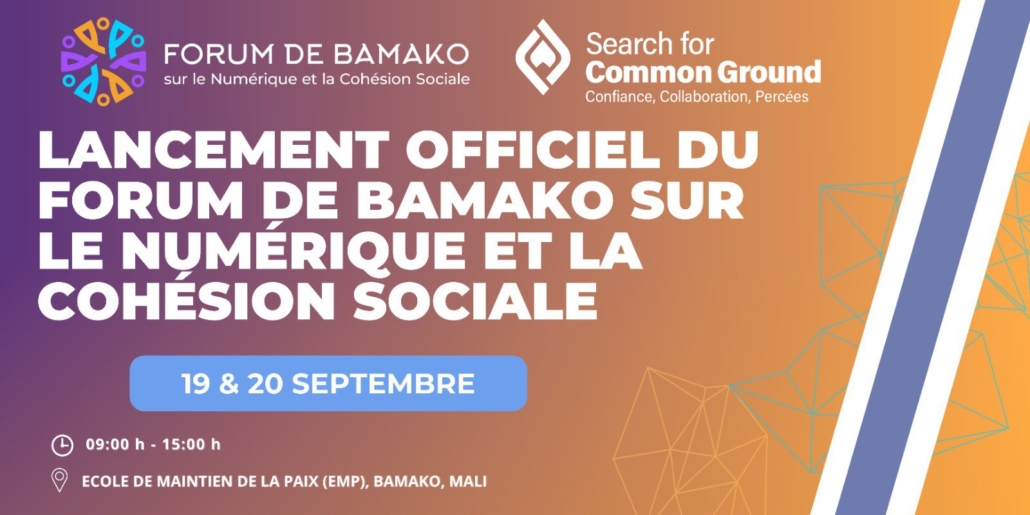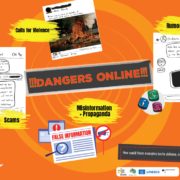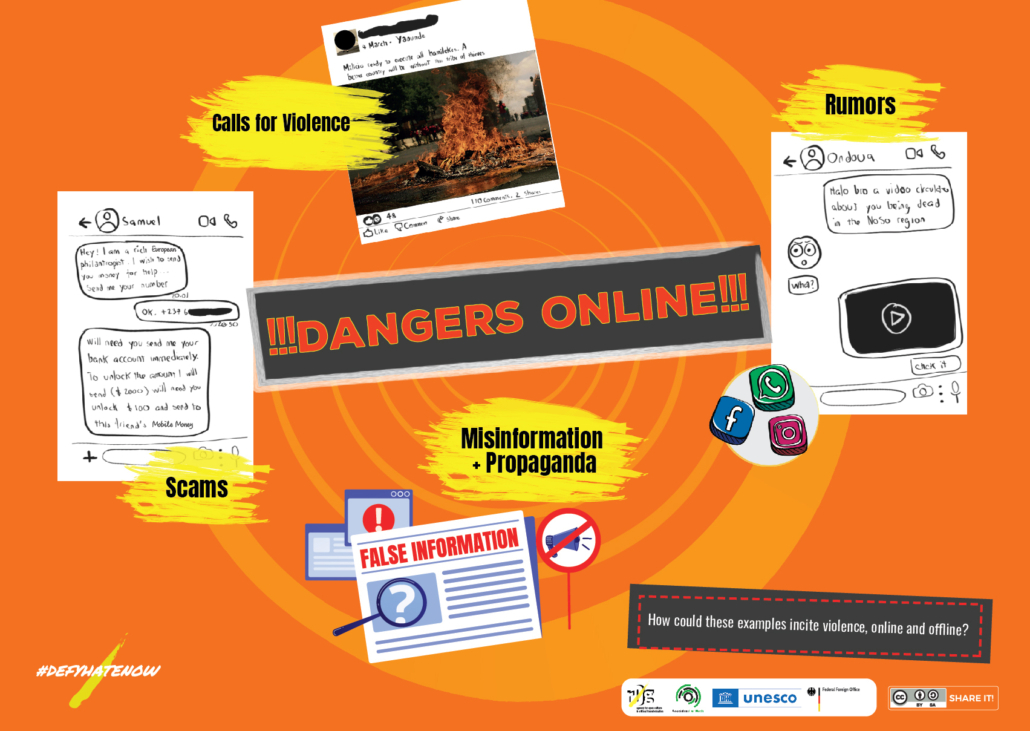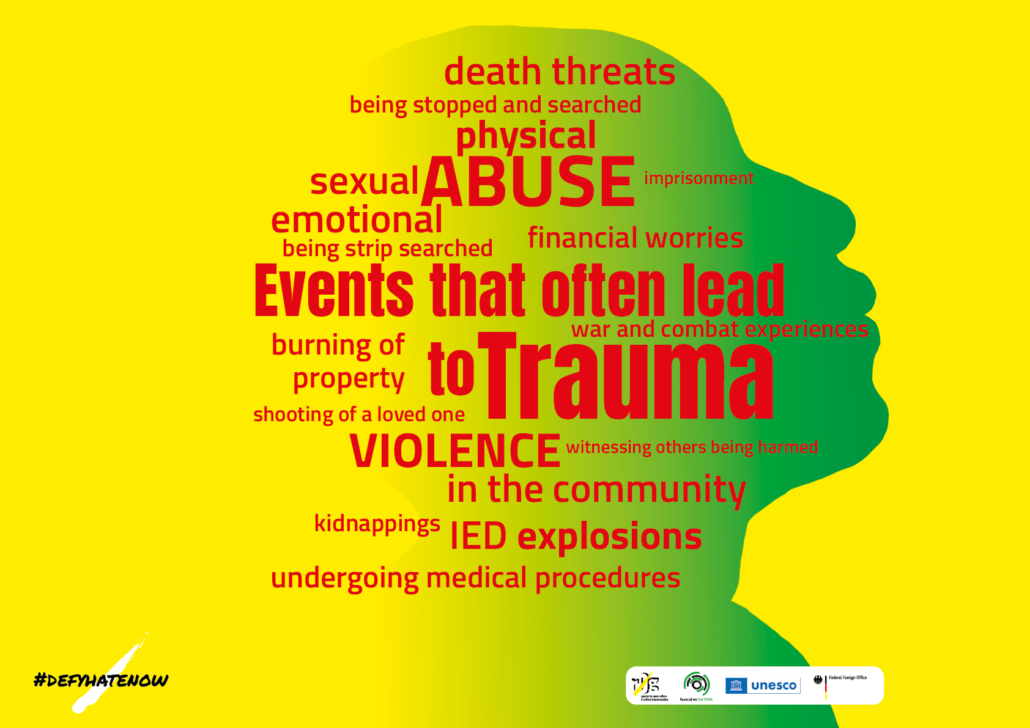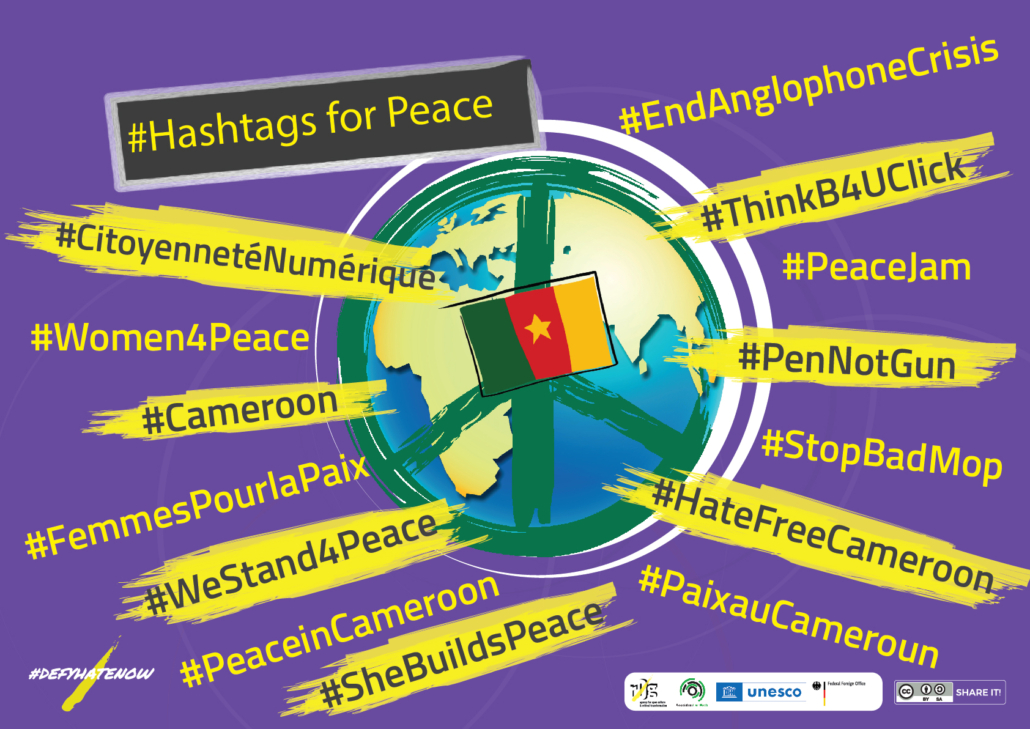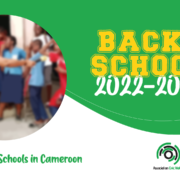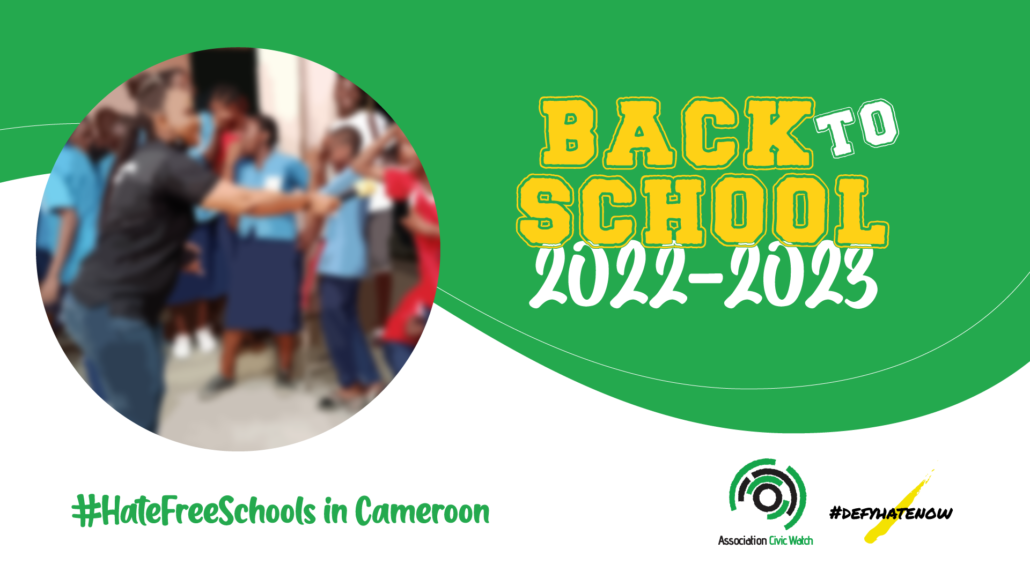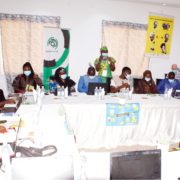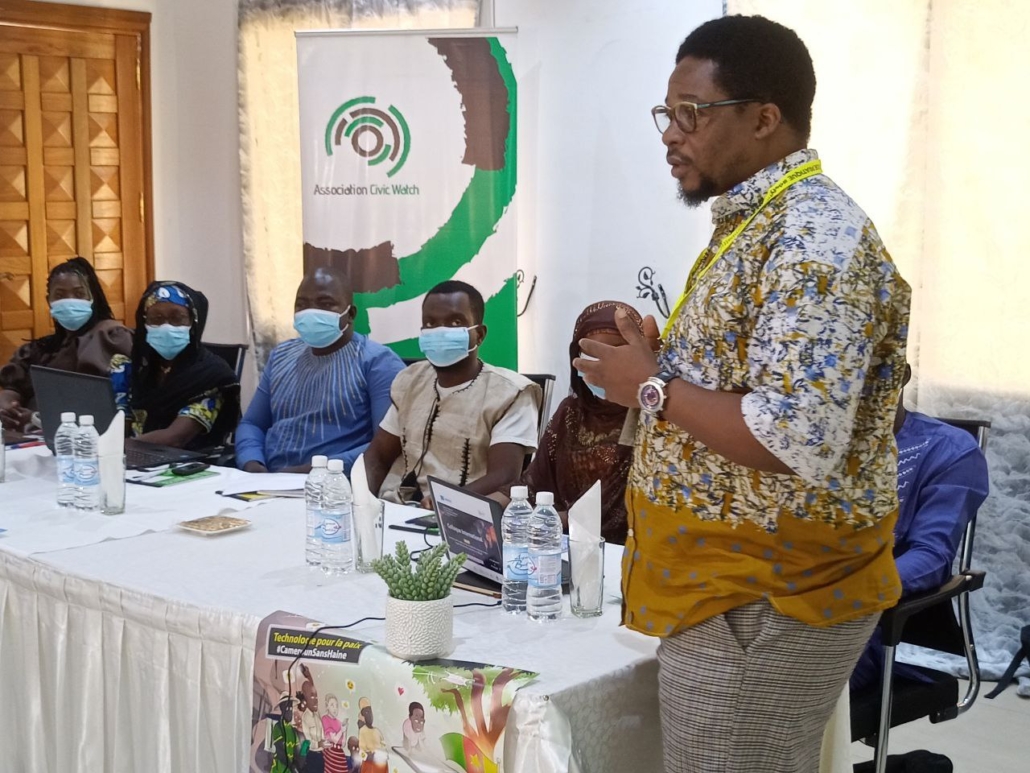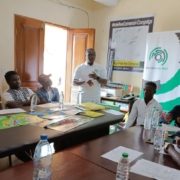“YOUTH AND VOLUNTARY PARTICIPATION IN THE MAJOR CHALLENGES OF CAMEROON”
Civic Watch le 10 février 2022 a eu un entretien avec 20 jeunes basés à Yaoundé à l'occasion de la célébration de la Journée de la Jeunesse au Cameroun. Le thème de cette année : "Jeunesse et participation volontaire aux grands défis du Cameroun", met en exergue l'implication des jeunes dans le développement. Ainsi, quelques jeunes issus de différents milieux, journalistes, enseignants, blogueurs, étudiants, et organisations de la société civile ont été invités à la session. L'objectif était qu'ils parlent des difficultés auxquelles la jeunesse camerounaise est confrontée, de l'impact de leurs actions dans leur vie et dans la société, et de la manière de participer au développement et au maintien de la paix... la paix de leur communauté.
La réunion a débuté par un discours de bienvenue du président de l'organisation, M. Ngala Desmond, qui a expliqué le mandat de Civic Watch : mobilisation de l'action civique, lutte contre les discours de haine en ligne, la violence et l'extrémisme violent en ligne et hors ligne.
La session, modérée par Kinang Derick, a commencé par une série de présentations et d'attentes de la part des participants. La première partie du programme a été consacrée à la célébration de la Journée de la jeunesse (passé et présent), aux attentes suscitées par le discours du chef de l'État et au thème de la Journée de la jeunesse 2022 : (Jeunesse et participation volontaire) une voie à suivre ?
L'échange s'est poursuivi avec l'accord que la célébration de la journée de la jeunesse d'aujourd'hui est différente de celle du passé, la valeur a été perdue parce que dans le passé, les gens ont essayé de comprendre ce qu'était la journée de la jeunesse, mais maintenant, les jeunes ont des raisons différentes de participer. Il a été reconnu que la plupart des Camerounais ne savent pas pourquoi la journée de la jeunesse est célébrée. Le gouvernement camerounais a jeté les bases de la journée de la jeunesse. L'idée de cette journée était de célébrer l'histoire du Cameroun et de la transmettre à la jeune génération. On s'est également rendu compte que la crise anglophone et le CoronaVirus avaient contribué à la chute de la fête de la jeunesse au Cameroun. Selon le message du chef de l'Etat à la jeunesse, on s'attendait à ce que le président Paul Biya crée plus d'emplois pour les jeunes, qu'il promeuve l'éducation en créant des universités et Pavel-Aldo, membre du Forum académique des campus, a déclaré qu'il s'attendait à ce que le président mette des fonds à la disposition des jeunes qui ont des projets en attente de financement afin qu'ils puissent réaliser leurs rêves. En ce qui concerne le thème de la journée de la jeunesse, il a été discuté que les jeunes sont devenus préoccupés par l'argent plutôt que de vouloir acquérir des connaissances et des compétences.
La deuxième partie de la discussion a porté sur les thèmes suivants : les jeunes et la participation civique, les jeunes et la consolidation de la paix/le processus de paix, et la lutte contre les discours de haine et la violence dans les écoles et les communautés. Les jeunes ont reconnu qu'ils devaient être un exemple dans leur communauté immédiate pour contrer les discours de haine et la violence. Les participants ont convenu de la nécessité pour eux de faire preuve d'autodiscipline, de tolérance envers les autres et de sensibiliser les autres jeunes aux moyens de contribuer à la construction de la nation, à leur manière. En ce qui concerne les moyens d'exploiter nos différences pour avoir un impact positif sur la société, un exemple est la Coupe d'Afrique des Nations #AFCON2021 qui vient de se terminer et qui a été organisée par le Cameroun. La fête du football a rassemblé tous les Camerounais comme un seul peuple, une seule nation et parlant d'une seule voix. Les participants ont insisté sur les excès affichés par les utilisateurs des médias sociaux sur différentes plateformes, avec le potentiel de déclencher la violence. Un exemple typique a été la montée récurrente de la violence [généralement induite par la drogue], observée dans la plupart des écoles secondaires, qui aurait été influencée par les médias sociaux.
RECOMMANDATIONS
En ce qui concerne les recommandations, les jeunes ont recommandé que les parents soient sensibilisés à l'éducation morale de leurs enfants à la maison, car la morale de la jeune génération se dégrade de jour en jour.
Les jeunes doivent travailler en étroite collaboration avec les enfants, dénoncer certaines des choses qui se passent dans leur environnement, noter les difficultés qu'ils rencontrent et trouver le courage d'expliquer leurs problèmes de manière pacifique aux autorités gouvernementales.


